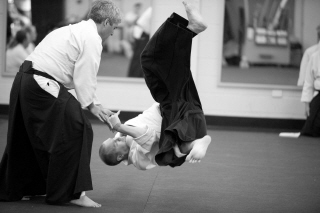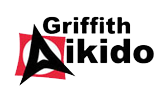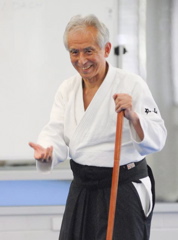Shukan News 21st Mar
Monday 21st March 2011
If you have any contribution for the Shukan News (story, photograph, video), please send it via email to gary@garyweigh.com
1. Message from Kondo San
Dear Friends,
Since the conditions in Japan have somewhat deteriorated with the nuclear radiation threat added to the initial disaster, and we are all worried about Sensei’s wellbeing, I have sent another letter to inquire about the present circumstances and to ask whether we could help in any way.
Following is information from Kondo-san, which she asked to pass on to everybody. (It was originally in Japanese, so this is the gist of it …).
Kind regards
Elizabeth
“These are the current conditions. Information on the TV is that goods have disappeared from shops, but in Tokyo vegetables, meat, fish, rice and toilet paper is available. Everyday life is not a problem. I am helping Sensei in his house to finish cleaning up. Sensei came back to his home in Edogawa-ku on the 12th and he is here now. We are both well, but very busy.
Water, electricity and gas are no problem, so life goes on. Thank you for your concern.
Yasuko san had lots and lots of tableware and most of it is broken. There are few remaining servicable items, but it is not a problem.
However the nuclear plant disaster is a little worrying. Since the electric power level has dropped, the electric train service is scarce and it is difficult to go to the dojo, so we have suspended tomorrow’s aikido practice.
Because of the aftershock and radioactivity Sensei and I refrain from leaving the house. When we see on the TV the people of the area struck by the disaster, the heart aches. However please let everybody know that Sensei is well.”
2. Safety Part 2 – injury, illness and bleeding
 One of the most important requirements of long term Aikido training is sustained good health, which includes an injury-free body. It is difficult to practice when you are sick or injured. It can also be unsafe for others.
One of the most important requirements of long term Aikido training is sustained good health, which includes an injury-free body. It is difficult to practice when you are sick or injured. It can also be unsafe for others.
So in addition to observing safe practices on the mat (see Shukan News 14th March edition), good health practices, both on and off the mat, are critical to maintaining a safe environment for everyone.
• One of the first techniques you learn in Aikido is Ukemi – the art of defensive falling. Instruction starts in the Beginner’s Course and Ukemi practice never ceases. It is critical that you develop the ability to be able to fall correctly and safely because it underpins safe Aikido practice. It also plays a significant role in self protection outside the dojo.
• All injuries must be reported to the class instructor. It is often the case that you don’t realise that you are injured until you go home and cool down. If that is the case, please let us know as soon as possible, even if that is at the next class or by email. We need your feedback to be able to take action.
• When you return from a significant period of illness or injury, you must discuss you practice capability with the instructor. It is a mistake to think you can immediately return to your pre-illness or pre-injury levels of competence. It is important that you cease or sit out activities that cause you discomfort. Accordingly, the instructor will encourage you to modify your practice if required e.g. no forward rolling, no sit down backwards rolling etc
• It is your responsibility to tell the instructor of any infectious disease you may have or any condition that might affect the health of others. The most common infectious disease is a cold or flu. We understand your commitment to practice but in the interests of protecting your fellow students please do not come to class when you are sick with a cold, flu or any other infectious disease.
• The instructor has the right to exclude any student from class. Whilst this rarely occurs, it is done to protect the other people in the class. Reasons are usually associated with an obvious injury or poor health of a student, including obvious symptoms of colds and flu. Occasionally it can be related to discipline or inappropriate behaviour
• The instructor may also ask you for a written medical clearance before allowing you to return to class. We understand that some students are keen to return from injury or illness, but they can also represent a danger to themselves or to their fellow students.
• When returning from injury or when nursing a minor injury, it is the student’s responsibility to disclose the injury to the instructor and to every training partner. It is our practice to put tape of your Gi in the form of a cross (x) to mark the injured or sensitive body part.
• If you are bleeding or have blood on you or if you have blood on your Gi then you must leave the mat immediately. This also applies to a cut or an open wound that has the potential to bleed during practice. Most cuts are caused by long fingernails, toenails and items of jewellery worn on the mat. Occasionally, the cause can be accidental collision with another student or accidental contact with a wooden weapon.
• Any student who has come into contact with blood may not return to the mat until blood has been cleaned off, bleeding has stopped and the wound is appropriately dressed. Any blood affected area of the mat should not be used until cleaned and disinfected with dilute bleach solution (5.25% sodium hypochlorite). Gloves should be used when treating or come into contact with blood. Disinfectant, dressings, gloves and bleach are located in the First Aid kit. If you have come into contact with blood and are concerned, seek further medical advice.
3. Cheese and crackers for the soul
“Knowledge in harmony is called constant. Constant knowledge is called wisdom. Increase of life is called felicity. The mind directing the body is called strength.” Lao Tzu

